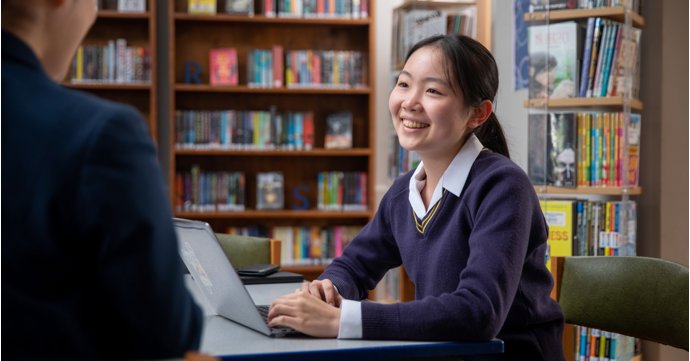Young people may feel anxious for a variety of reasons, from feeling the pressure in the build up to their exams, to making choices about their future and trying to create solid friendships.
Teenagers across Gloucestershire have also had to deal with the effects of the Covid-19 pandemic over the last few years, missing out on school trips, events and the opportunity to learn from those around them in a classroom environment – meaning many schools have faced new challenges in reaching out and supporting students with their mental wellbeing.
Tackling this, St Edward's School Cheltenham has a number of strategies to help its students to manage their anxieties.
Headmaster Matthew Burke says that normalising anxiety and mental health is a vital part of the school's provision. It's important that students not only know there are others feeling the same way as them, but that many others have experienced the same feelings in the past – and plenty more will in the future.
'The point we make to both our parents and students is that anxiety exists and that it is entirely natural to feel nervous and anxious at various points in our lives,' he says.
'We are very fortunate to have a wellbeing team based in the
school which includes a medical nurse, mental health nurse, counsellor,
pastoral and achievement coordinator - as well as two dogs!
'This team runs workshops with both our students and our parents, making them aware of what resources they can access at school and how we try to be proactive in dealing with all issues relating to mental wellbeing.'
Along with this, St Edward's make use of an online portal that students can access 24 hours a day, 365 days a year, where they can let staff know about their concerns or worries and are signposted to support, no matter the time.
This, along with the school's PSHE programme, tutor programme and support outside the classroom, ensures that its students know that there's always someone they can talk to.
Dedicated mental wellbeing provisions help to remind students that they don't have to tackle their anxieties on their own, allowing them to recognise that they have a team looking out for them in school, as well as their family at home.
'Whilst it may feel challenging, things will get better in time and with support - and that starts with conversations,' says Burke.
Though there isn't a one size fits all approach to teenagers' mental wellbeing, schools must remind students that speaking with people they trust is key, to build that all-important support network.
'It is also important that we keep an eye on our friends, check in with them on a regular basis as this will not only help them but ourselves as well'.
Burke also recommends that teachers encourage students to use more than one source of information about mental health, not to solely rely on online sources and of course, keep talking.


.jpg?width=730&height=383&rmode=pad&bgcolor=ffffff&quality=85)


.jpg?width=690&height=361&rmode=pad&bgcolor=ffffff&quality=85)















